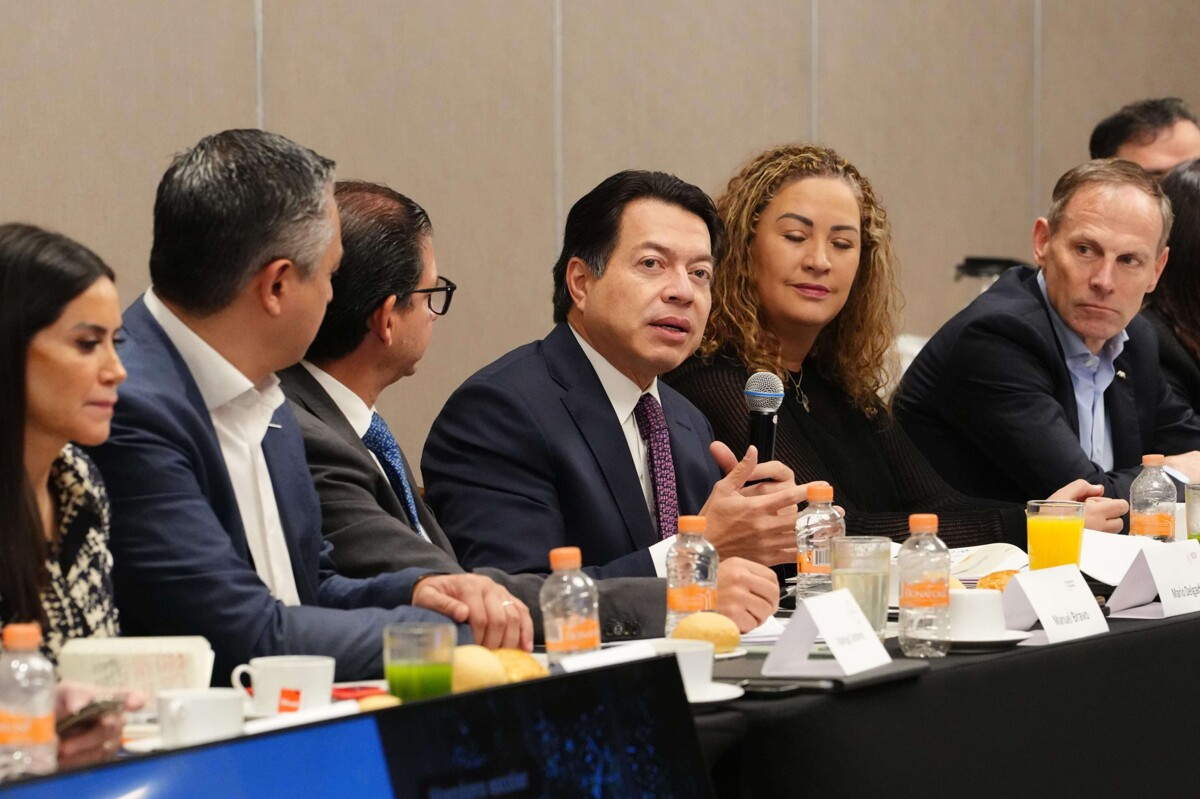
The Secretary of Public Education (SEP), Mario Delgado Carrillo, called on Global Companies to integrate thematic working groups between educational authorities and leading companies. The goal is to update the curriculum in Upper Secondary Education, train new teachers, and design careers that respond to the speed at which the Mexican economy is moving.
During the session of presidents and general directors of the Council of Global Companies in Mexico, Delgado Carrillo emphasized the existence of a disconnection between graduates of Upper Secondary and Higher Education and the needs of the economy. The creation of an Evaluation Committee for the Dual Education Agreements between the SEP and companies that adopt this model is proposed. The signing of 2,500 new Dual Education agreements with the same number of companies is anticipated, expanding the model from 471 to 1,000 educational institutions.
The president of the Council of Global Companies in Mexico, Manuel Bravo Pereyra, highlighted the importance of having highly trained professionals to achieve employment objectives, the relocation of investments, scientific and technological development, along with the wellness corridor strategies of the Mexico Plan. It was emphasized that private sector participation in education is essential to align talent training with labor market demands.
In this context, it was underscored that an educational ecosystem aligned with the productive sector strengthens the competitiveness of the country, fosters innovation, and positions Mexico as an attractive destination for foreign investment. Council representatives expressed their willingness to collaborate with the government of Claudia Sheinbaum Pardo and with the SEP to improve education in the country and provide a promising future for young people.
Regarding Dual Education, it was noted that currently 17,000 students are pursuing Upper Secondary Education under this model. It was emphasized as an opportunity for progress, urging entrepreneurs to take advantage of the tax incentives of the Mexico Plan. Examples of successful collaboration between companies and the educational sector, such as specialized careers in semiconductors at the National Technological Institute of Mexico, were mentioned.
The challenge of the educational system is to adapt to the current speed of the economy, according to Delgado Carrillo. Of the 106 existing technology baccalaureate courses, it is proposed to condense them to 50, with between 10 and 15 new creations to adjust to business needs. The possibility of matching the speed of the economy and education to ensure training aligned with labor market demands is highlighted.













